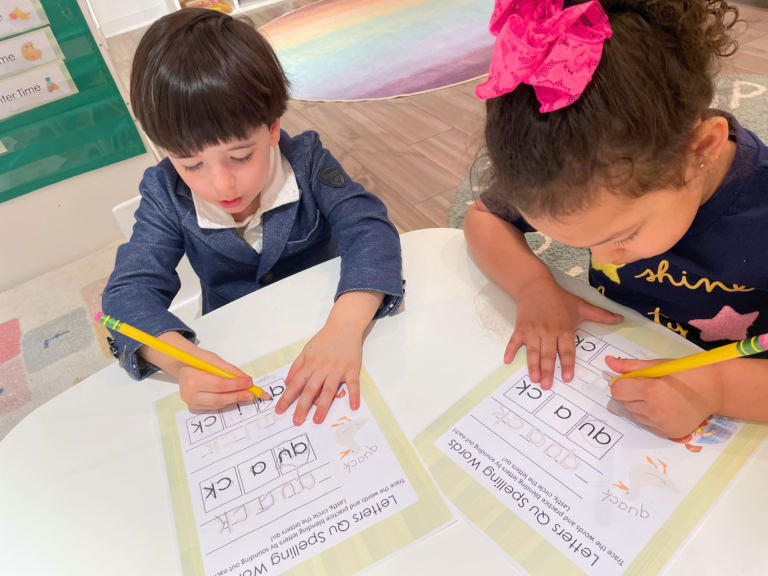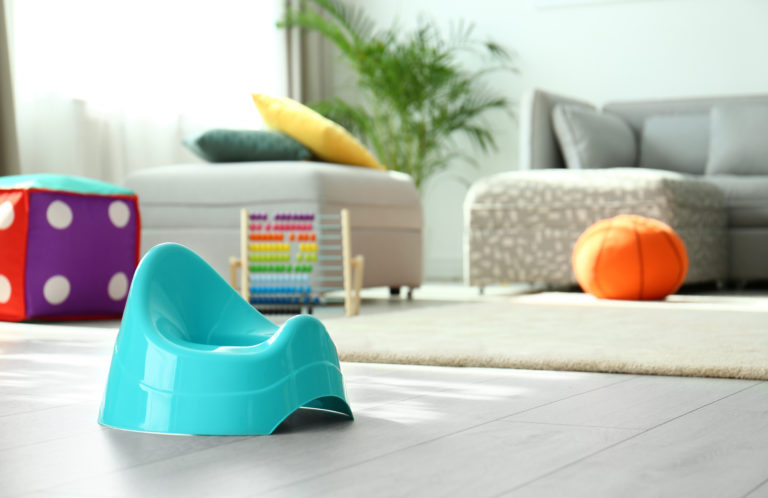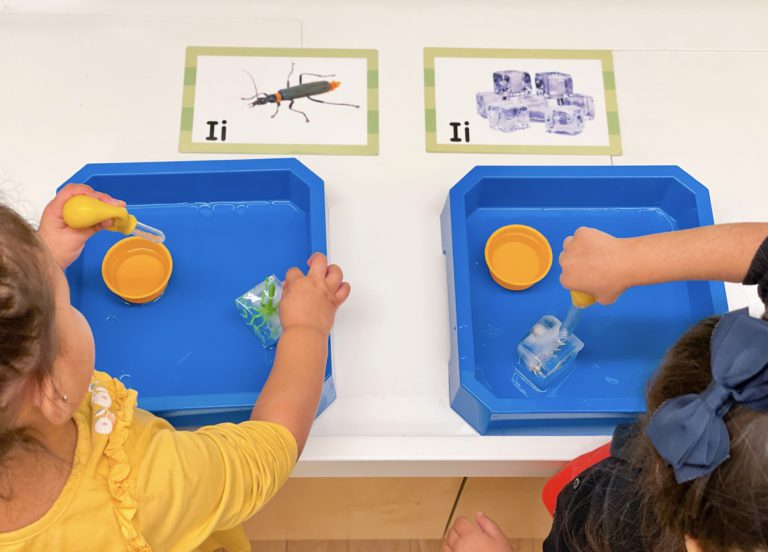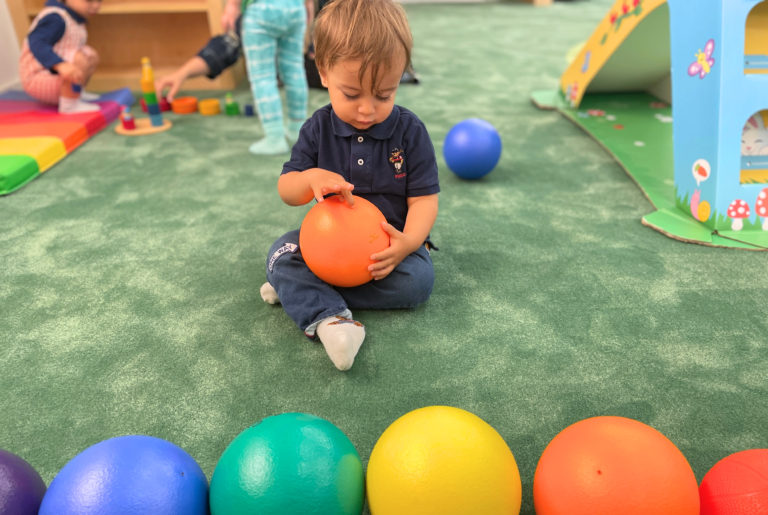Helpful Tips for Disciplining Your Toddler

When your little one is growing up and exploring the world around them, whether in preschool at home or elsewhere, it’s easy to feel tested! Even the best parents can struggle to discipline their little ones; it’s challenging to be firm and set boundaries in a non-authoritarian manner while encouraging growth in a way that suits both you and your little one—especially with the blurring of the boundaries between home and school that can come up while being enrolled in online preschool. It’s okay, though! To discipline effectively, it’s important to know why the discipline is happening, or when it should be happening, such as when your little one is behaving aggressively or inappropriately. Here are some great tips for you to try if you feel like you are struggling to discipline your little one effectively:
Pick Your Battles
We know—it’s what everyone says! However, there’s actually a lot of merit to not saying “no” to everything your little one does. Firstly, if all your little one hears is “no,” chances are they will tune it out and be confused about where your priorities are. It also makes your life challenging, in that it means you have a long list of “no’s” to follow up on! So, a good tool for picking what you’d like to veto and let slide is to sit with yourself and ask: “What is important to me?” Is your little one choosing to wear an outfit that is a bit silly on the same plane as needing to tell them to stop hitting their younger sibling? When you determine your priorities, you are able to attach the appropriate consequences to things and maintain a positive relationship with your little one.
Know What Will Trigger Your Little One
As we always say, nobody knows your little one quite like you do, and you can use this to your advantage when it comes to discipline. This can help you be proactive rather than reactive when your little one misbehaves. For example, if you know that during online preschool your little one gets distracted by their stuffed animals, be sure to either set up your homeschool station in a more conducive environment or take the stuffed animals out of sight! This will alleviate the need to take them from your little one when they have already engaged with the toy, which could lead to a tantrum. In a similar way, you can start to take notice of your little one’s emotional schedule and plan accordingly. If you know that they tend to act up more in the afternoon due to hunger or exhaustion, you can pack snacks or be sure to schedule errands sooner in the day. You can try “previewing” as well, which is something we’ve talked about in many of our blogs; it helps prepare your little one for the things that they may not be excited for in order to mitigate tantrums.
Be Consistent
It’s really tough to be consistent sometimes, especially in a world that changes so much. However, it’s so important for your little one’s development that you try to keep your behavior and reactions to their behavior as steady as possible. As they grow older, little ones are trying very hard to understand how their behavior will impact the world around them, and if your reaction changes on a day-to-day basis, they have no metric for understanding how they should behave. If you keep your reactions to their behavior consistent, you can help set a standard for them that is easily understood and can be built upon!
Don’t Get Emotional
It’s tough to stay calm under fire, especially since parents have messy lives of their own to cope with! It can be really frustrating when your little one acts up during online preschool or yanks on their sibling’s hair for the fifth time that day, and that frustration can build up quickly. However, it is imperative to stay as calm as possible when you discipline your little one. If you fly off the handle, chances are that your little one will only see the emotion, and the actual message will get lost; there is also the potential that your little one will only be entertained by your emotions. Instead, try to breathe and count to ten before you engage, and when you do, be firm, calm and concise—for your sake as well as theirs.
Listen and Repeat Back
We all like to feel heard, and I can assure you that your little one is no different! Instead of ignoring their emotions or feelings when they arise, confirm and validate them, and repeat them back to your little one so that they feel heard. It won’t totally get rid of their feelings—they may still feel disappointed that they have to wait until online preschool is over to play on their devices—but it will help to mitigate a tantrum and diffuse the situation at hand.
Keep It Simple
It feels like a “good parent” move to go into detailed explanations to your little one when they act up. You’re being certain to explain why you’re upset and the consequences of your little one’s actions. However, it honestly doesn’t actually help in most scenarios, since toddlers (no matter how intelligent they are!) are generally incapable of understanding such complicated sentences. Instead, it’s better to be short and sweet when you offer discipline or instruction to your little one, such as “No hitting—that hurts me.” When your little one is a bit older and out of preschool, there will be time for those explanations.
Offer Up Options
If you’ve struggled with your little one refusing to do something or continuing to do something you’ve asked them not to, it usually boils down to their desire for control. A good tactic for diverting their attention and offering them some semblance of autonomy is to give them a few choices, all within your goals that have been set for them at that moment in time. Offer two or three max, and be clear and firm with what options are available. This is also a good way to help your little one express their feelings in better ways; for example, if they are upset, offer them the option of screaming or hitting a pillow rather than their sibling.
Watch Those Words
Pointing the finger can be very easy, especially if both you and your little one have had a long day. A good tip for refocusing is to turn statements that could feel accusatory, such as “You’re always misbehaving during school,” into statements about what you want to see from your little one, such as “I like the way the other children are sitting in their seats during class.” You can focus your requests into something that is also positive for them; for example, instead of asking them to move their toys because the hallway is messy, ask them to move their toys so they do not get damaged.
Teach Empathy
This one can’t be emphasized enough! Because your little one is still trying to understand how their actions are affecting those around them, it’s key that you help them do so. When you ask something of your little one, help them understand how it makes someone feel, such as “Other little ones get sad if they don’t get a turn to play with the toys.” It helps them see their behavioral impact more clearly.
Give a Time-Out (or a Time-In)
Sometimes all of these tricks just don’t work, and your little one continues to push boundaries that you have set in place for them. When this happens, it is important that the punishment matches the boundary violated, depending on age. When your little one is in time-out, you can measure how long the punishment ought to be based on how old they are. Be serious with them when you tell them that time-out is on the table, and stick to your statement. Finally, be certain to let them know once their punishment is up that you love them.
Reward Good Behavior
We all like to be noticed when we do things right, and your little one is no exception, especially while in virtual preschool. While it’s normal for your little one to misbehave, it’s also possible for them to turn things around and demonstrate to you how they’ve learned how to act. When this occurs, be sure to let them know you notice it and appreciate it!
It can be really overwhelming to try and discipline your little one in a way that is helpful to them without losing your temper or overreacting. However, it’s crucial that you try to stay positive! Things will improve, and how you react in the moment will certainly impact your little one for a while to come.
Try Our Virtual Preschool for FREE! Playgarden Prep offers educational videos from real teachers, and numerous DIY projects that support early childhood education and development.
Popular


Hi, I'm Miss Charlotte!
Miss Charlotte is an Education Director by trade, and a mom by heart. All 200+ of our DIY projects were created by Miss Charlotte, with the help of her expert DIY assistant—Her 4 year old daughter! With a MST degree in Early Childhood Education and 15 years of teaching experience, her blogs and DIY projects have been an incredible resource for our Playgarden Prep schools. We hope that your family loves them as much as we do!






